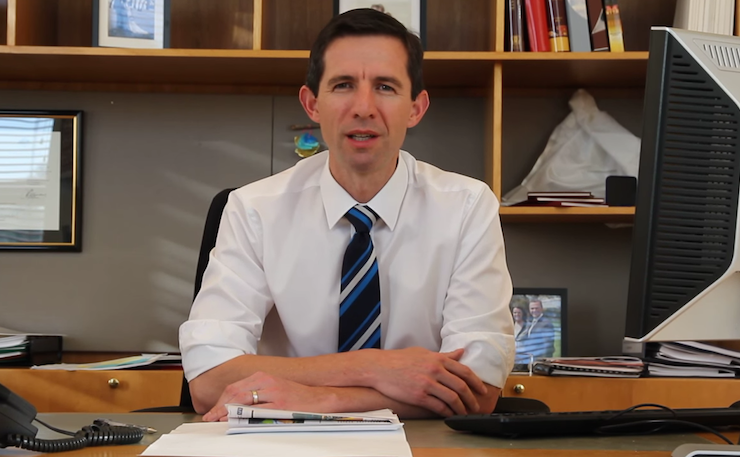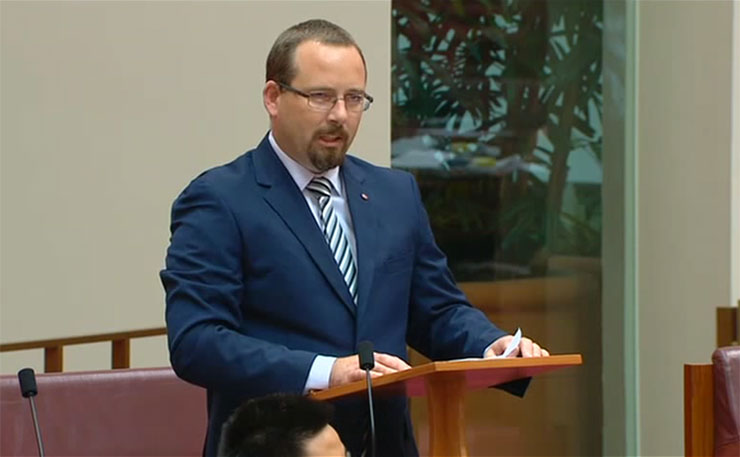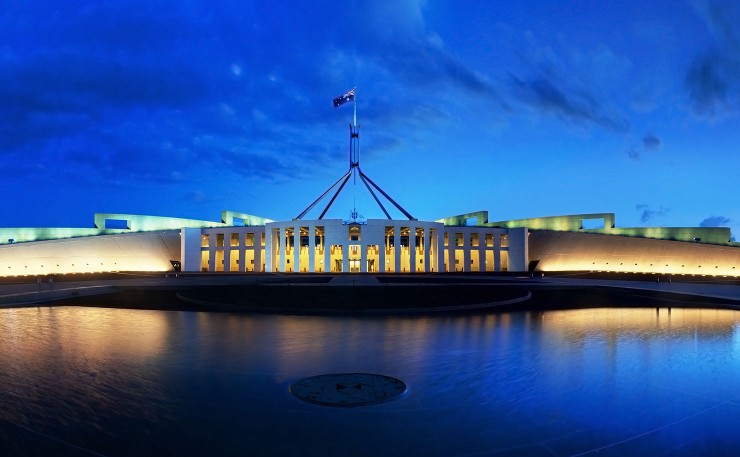ANALYSIS: Friday marked the end of a political week that voters would likely rather forget. Ben Eltham sums up the chaos in Canberra.
It was a bewildering week in federal politics. Both sides of the political divide ignored the larger issues of Australian society, and instead engaged in internecine civil war. Voters watching on must have wondered why.
For the conservatives, the issue was queer sexuality – nominally at least. The Safe Schools imbroglio, already a by-word for the prejudice of the Liberal right, continued to cast its doleful spell on conservative politics.
Not content with a government review by a respected academic that largely cleared the initiative, the insurgents on the Liberal backbench continued their crusade to make Australian schools safe for bullies.
After a “briefing” with Professor Bill Louden and a meeting with Education Minister Simon Birmingham, the Unsafers were able to proclaim victory in this latest skirmish in the never-ending culture war that is the modern Liberal Party.
If you’ve bothered to follow this dismal debate, you’ll know that the issue is supposedly about the Safe Schools program, a completely inoffensive anti-bullying initiative that helps schools deal with students being bullied over their sexuality.

It’s a measure of the weird sexual obsessions of the Australian right that a program launched by none other than Tony Abbott has now become the bête noire for movement conservatives. The pantomime descended into farce as LNP backbencher George Christensen circulated, then lost, a petition against Safe Schools around the Liberal party room.
In a delicious irony, the victory over Safe Schools was announced on the federal government’s National Day of Action Against Bullying and Violence.
And so we saw the spectacle of the LNP’s odious Christensen, a man who once infamously found himself speaking on the same platform as Reclaim Australia, auditing the educational materials of Australian high school students.
If it wasn’t so serious, it would be farcical.
Of course, this was never really about Safe Schools, let alone the sexuality of Australian children. This is really about the factional power balance inside the Liberal Party.
Shorn of their champion in Tony Abbott, the right wing of the Liberal Party is running amok in an effort to make Malcolm Turnbull’s prime ministership all but ungovernable. If this week’s events are any guide – with a backbencher from central Queensland running Australia’s education policy – they may be succeeding.
On the progressive side of the fence, matters are just as confused. Labor and the Greens have fought a bitter month-long battle over the arcane issue of Senate voting reform.
A little like Safe Schools, Senate voting reform was merely a cipher for ongoing ideological combat. The bill passed on Friday will introduce above-the-line optional preferential voting on the Senate ballot paper. It’s a modest and incremental democratic reform that, on the face of things, you would have thought Labor would have supported.
In fact, until a month ago, Labor did support Senate voting reform. Its spokesperson on the issue was Gary Gray, a former national secretary who is retiring from Parliament this week. Gray has publicly lamented Labor’s opposition to the reforms.

“These reforms simply mean that political parties, including my own, will have to convince the public rather than backroom-deal makers that they deserve their votes,” Gray said in February. “The counting of a ballot paper should reflect the intention of the voter and not the desires of ballot manipulators.”
As we also argued in February, the reforms are in fact progressive and democratic, because they remove the ability for political parties to control the distribution of Senate preferences.
In the old system, the majority of electors who voted “above the line” in the Senate had no say where their preferences ended up. Preferences were allocated by party bosses. Voters who wanted to control their Senate preferences had to vote below the line, in a complex and confusing ballot that required numbering dozens of boxes.
Labor’s stance on Senate voting has been utterly incoherent. ALP Senators like Penny Wong and Stephen Conroy have simultaneously claimed that votes for minor parties will now be “wasted”, celebrated the value of accidental senators like Ricky Muir, and warned that the reforms could lead to conservatives controlling the Senate.
None of these arguments are credible. In the new system, Senate preferences will still be distributed, and votes for minor parties will still count. Even if some senators will be elected with slightly less than a full quota, this does not mean votes are “wasted” – a pejorative term that ignores the fact that many voters may not want to distribute preferences anyway.
A vote cast for a party that does not win is no more “wasted” than a vote cast in the lower house for a losing candidate.

Nor is there any evidence that the new system will lead to more conservatives in the Senate. The most likely outcome is that the final Senate spots in each state will continue to go to either the Greens or a conservative party, depending on preference flows.
As Antony Green has noted, the likelihood of conservatives winning the Senate is ultimately a function of first preference votes.
As for Labor’s concern for the minor parties, the less said about this breathtakingly hypocritical position, the better.
With the government winning the support of the Greens for the reforms, Labor and the independents resorted to an American-style filibuster in an attempt to frustrate the Senate vote. This led to the all-night sitting on Thursday and provided colourful images for journalists, but had no impact on the eventual passage on the bill.
Labor has railed against the Greens for voting with the government on Senate reform, but it’s not entirely clear whether ordinary voters know or care.
As with the Safe Schools controversy, the real source of the anger over Senate voting reform is partisan ideology.
The Labor-Greens animus stems from the increasingly savage combat the two parties are waging over inner city electorates, with the environmental party posing a serious threat to lower house Labor electorates like Sydney, Grayndler, Wills and Batman.
The stakes are high. Green victory in these seats would signal a major setback for Labor in its progressive heartland, and end the careers of high-flyers like David Feeney, Tanya Plibersek and Anthony Albanese.
Labor’s renewed anti-Greens campaign shows just how scared the ALP is about that outcome.
Donate To New Matilda
New Matilda is a small, independent media outlet. We survive through reader contributions, and never losing a lawsuit. If you got something from this article, giving something back helps us to continue speaking truth to power. Every little bit counts.





